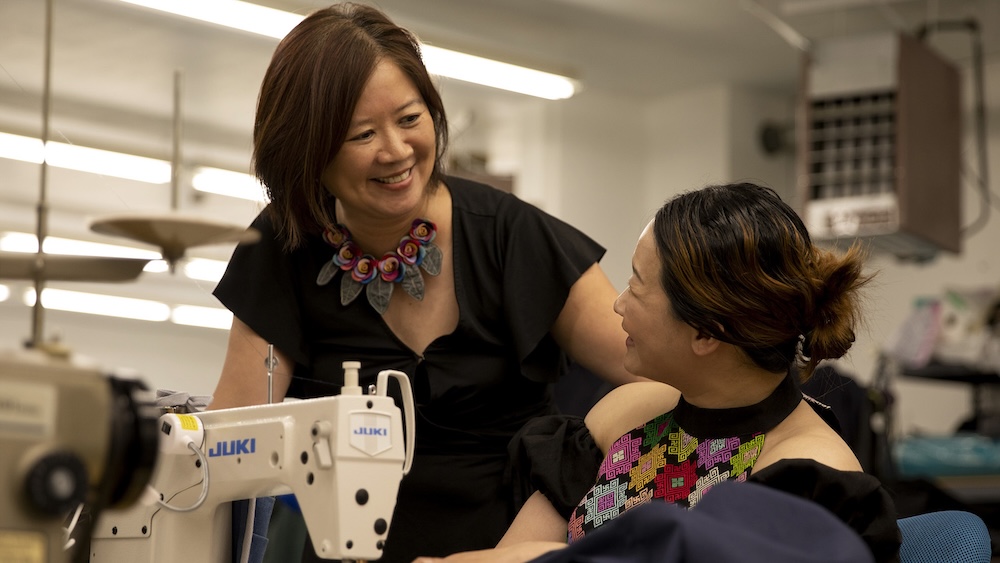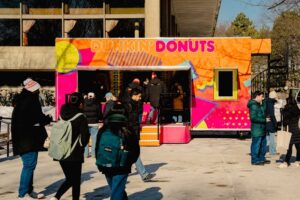


Ming-Ming Tung-Edelman, left, founder of the Refugee Artisan Initiative, with an artisan partner in the organization’s Seattle workshop.
Last winter, during a press trip to Seattle, I visited the nonprofit Refugee Artisan Initiative (RAI), where a half-dozen sewing machines hummed in a studio among shelves stacked almost to the ceiling with bright bolts of textiles and other materials. RAI was founded in 2017 by Ming-Ming Tung-Edelman, a Seattle pharmacist and immigrant from Taiwan, as a way to help immigrant and refugee women become financially independent by employing their sewing and design skills to upcycle materials salvaged from businesses and other organizations.
Tung-Edelman wasn’t there the day I visited, but Shelley Lawson, RAI’s director of development and communications, gave me a tour and introduced me to some of the women who participate in the program. “Sewing is a universal language,” Lawson told me, and many of the women who arrive in the U.S. from other countries come with advanced sewing, embroidery, and design skills. Many also come with significant barriers to work, including language skills or the need to care for young children, and sewing is something that can be done from home, with flexible hours, Lawson said. RAI helps participants get business licenses and equips them with computers, ESL, and other skills, and — as I could see from the cups of tea and a platter of homemade pastries sitting on the big wooden table in the middle of the room — a sense of community.
RAI’s model rests on making zero-waste, upcycled products of their own design, using materials salvaged from local companies — in 2024, Tung-Edelman was named Recycler of the Year by the Washington State Recycling Association. RAI has made scrubs for the health-care industry out of surplus bedsheets from Amazon and totes from Starbucks’ coffee-bean burlap bags. But RAI’s largest — and most profitable — venture to date, Lawson said, was making 3,000 messenger bags from rice and grain sacks for the Asia-Pacific Economic Cooperation (APEC) meetings that convened in Seattle in 2023. An initial order of 2,500 was so well received that APEC ordered 500 additional bags. The upcycled bags represented four months of steady work for RAI’s community, Lawson said. “That changes lives.”
RAI estimates that its members have made more than 120,000 items by hand to date and, in 2024, kept more than 30,000 pounds of textiles and other materials from being sent to landfills. RAI artisans also have donated 5,000 hats and 80,000 face masks to the local community, and 1,000 pet toys and other pet products to a pet shelter, Seattle Humane.
Barbara Palmer is deputy editor at Convene.








